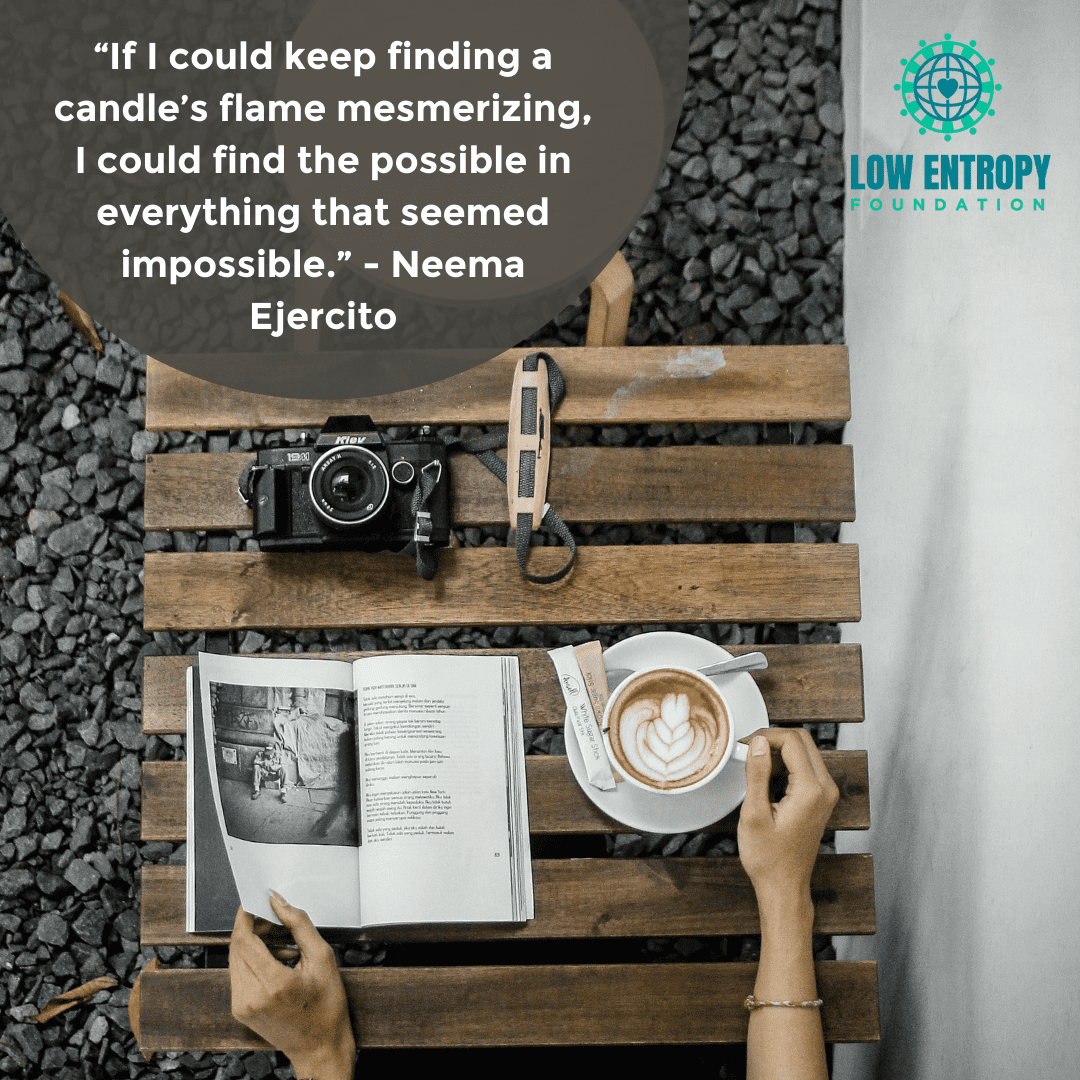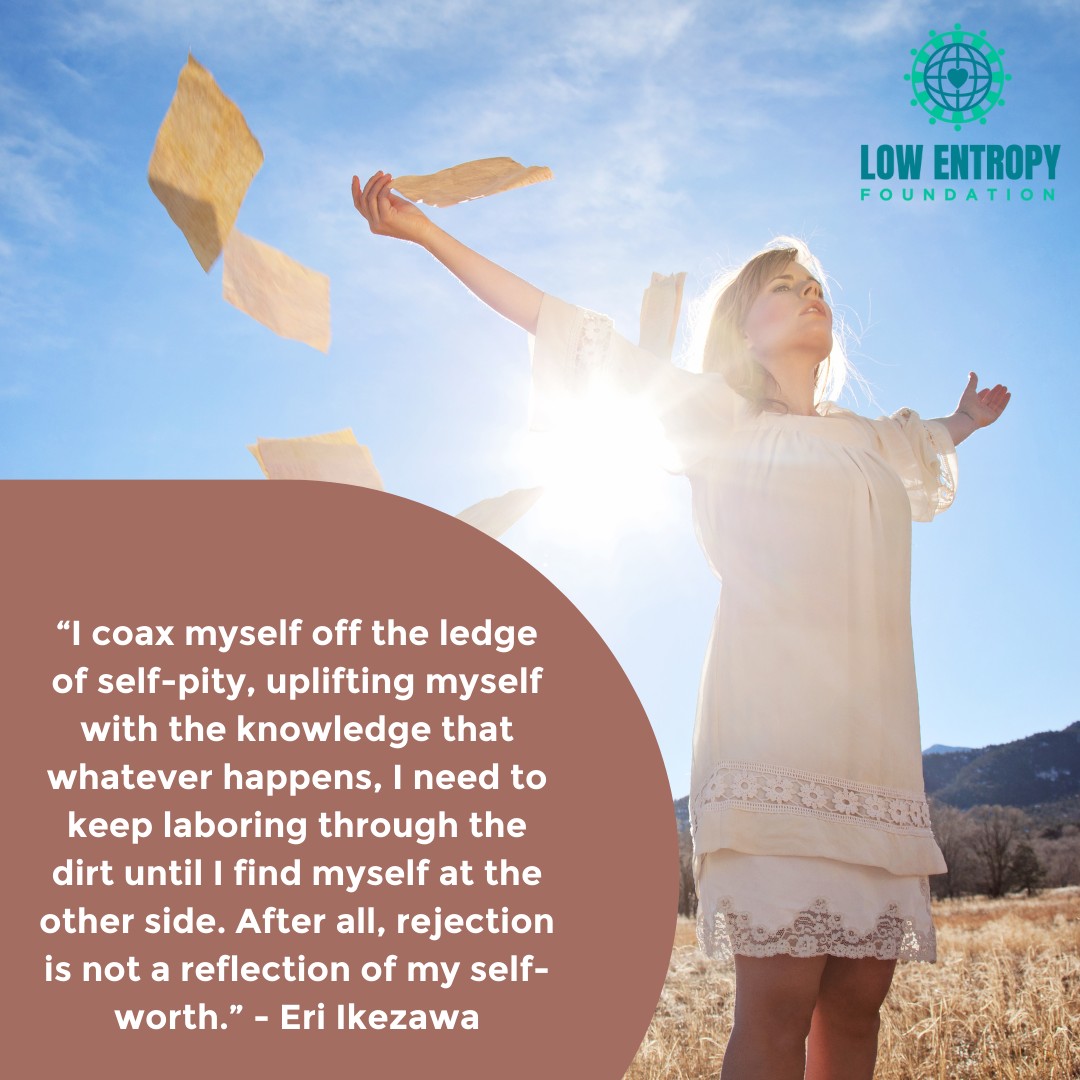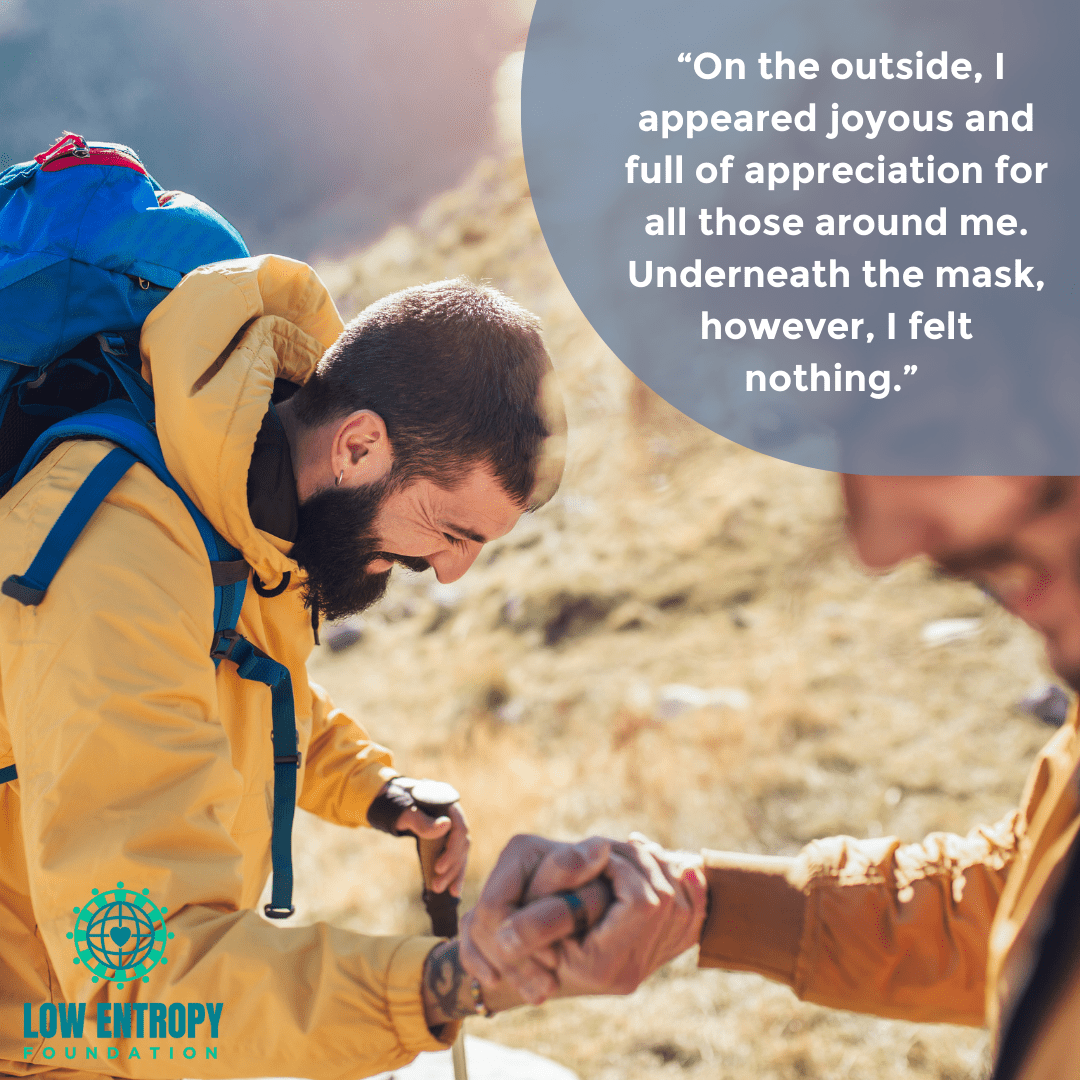What is Inspiring About an Ordinary Day: Revisiting Reflections on Wonder
June 12, 2022

Neema Ejercito (she/her/hers), Low Entropy Volunteer Writer
I remember answering this very question for a philosophy oral exam in my university days. Although many students complained that the university required too many theology and philosophy credits to graduate, I actually loved taking those classes. I recall that this particular test was one-on-one and outdoors (in fact, a walking one). This question wasn’t phrased the same way as the one in my exam, but the gist is the same.
I think the question was more about asking how applicable Gabriel Marcel’s philosophy on wonder was to my everyday life. Without hesitation, I realized that it just wasn’t some abstract theory that I memorized and not lived. I had learned what my philosophy teacher and Marcel were talking about when I explained that Marcel’s wonder was similar to going, for the first time, into the a store where I myself might routinely buy, let’s say, my school supplies from, and finding that act (or even the pen or notebook that I would usually buy) “new” even when the act (or item) was something seemingly ordinary to me. What I loved about that question and about how I answered it is that, like Marcel, I found something new in something that seemed mundane.
I also remember falling in love with Pablo Neruda’s poetry in my university days. I recall his collection of poems entitled Elemental Odes, where he elevates everyday objects into the most sublime experiences. Lemons, onions, salt and even socks (not just anyone’s, mind you, his!) became symbols of architecture and sharks, to mention a few. I am not sure if Neruda was influenced by Marcel, but I think they are talking about the same thing.
As I was researching this particular topic, I also came across another poet’s poem entitled “The Patience of Ordinary Things.” Pat Schneider is a more recent poet who passed on just two years ago. But reading her poem evokes the sacredness of the ordinary in the same way that Neruda’s odes did, in the same way that Marcel described wonder.
Ever since I learned about Marcel’s wonder, finding beauty in the ordinary has been my barometer for happiness. If I couldn’t feel uplifted by a flower I passed on the street or a cloud’s unusual pattern, I knew I was unusually down. And I realized that Marcel’s wonder is every happy kid’s secret. If I could keep finding a candle’s flame mesmerizing, I could find the possible in everything that seemed impossible.
As I get older (I can’t use “grow,” because to grow for me always means a forward, positive direction), I struggle to keep wondering. I have had to accept that, though I am slowing down, not just physically but also mentally, I am speeding up emotionally, meaning I am quicker to anger, sadness, happiness and even fear. Things that used to excite me and exhilarate me are now tiring and irritating. It takes more effort to find something new in making mistakes, to be able to laugh at myself when my glasses go missing for the millionth time, to be kind to myself when I can’t find the right words to say what I am trying to say.
Martin Luther King, Jr. once said, “If you can’t fly then run, if you can’t run then walk, if you can’t walk then crawl, but whatever you do, you have to keep moving forward.” This is true, but not always what I want to hear. I remember thinking that crawling forward is such a pathetic way to advance. But if wonder is about being childlike, then perhaps crawling isn’t so bad. Crawling again, after having been walking, or even running and jumping, is very humbling, but can also be beautiful because it strips away the restrictive grandeur of expectation to always keep one’s head held high.
Permit me to refer to one last poem, this time in Tagalog, by Jose F. Lacaba. I used his poem, “Nakatingin sa Bituin” (Looking at the Stars) as my university yearbook write-up. Lacaba beautifully describes a serene evening scene of gazing at the stars, only to be ruined by stepping on carabao feces. I like the extra layer of the rural animal, the carabao, to depict a simpler way of living. But I end with this poem because wonder, though it casts a new light on something mundane, isn’t always about something pleasant. What’s certain, however, is that it’s definitely about reality.
Dedicated to my philosophy professor, Dr. Antonette Palma-Angeles, for helping me feel the earth move.
—
Neema Ejercito is a professional writer, director and creative writing mentor. Her 3D edutainment series for beginning readers, AlphaBesties, is showing in YouTube Japan and Prairie Kids. When she’s not writing or mentoring, she manages her household with her very supportive husband and three children.
GET INVOLVED
At Low Entropy, we believe changing the world starts with changing ourselves.
Founded in 2015, Low Entropy Facilitates conversations that encourage diversity and promote inclusivity.
We understand that life can be confusing at times. It can seem challenging and sometimes you may feel like no one really “gets you.” We offer an opportunity to connect with others who have the capacity to understand you.









